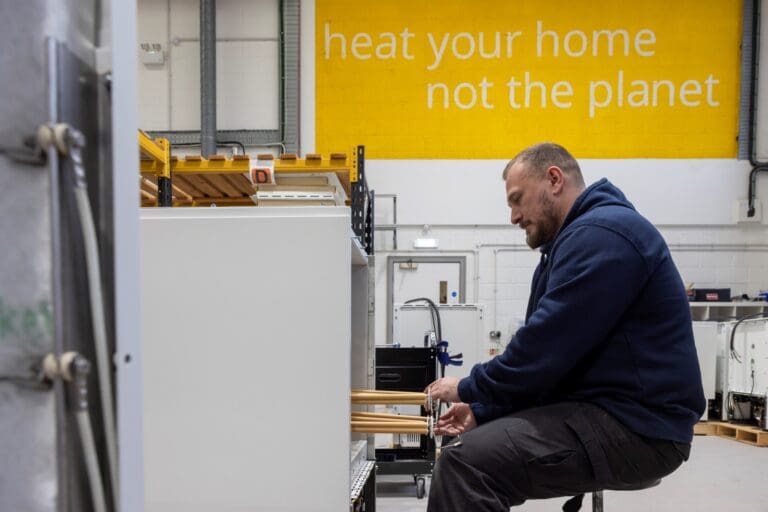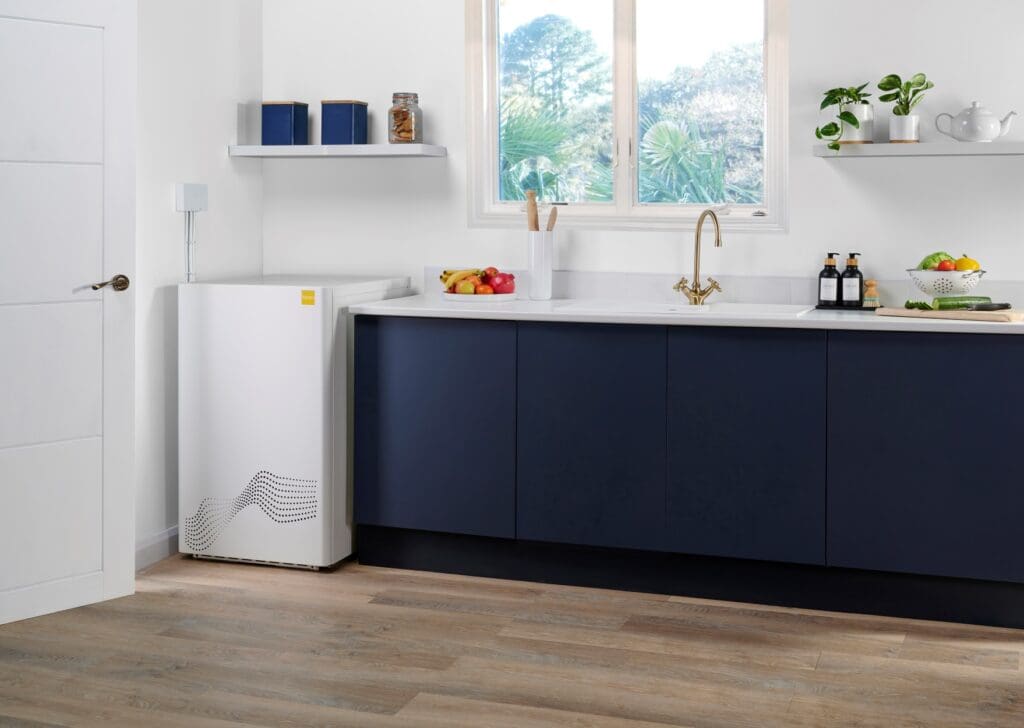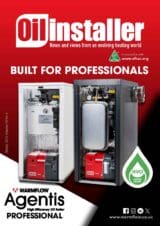
The familiarity and reliability of oil boilers can make homeowners wary of new technologies. Yet we are seeing an increasing number of oil-fired customers seeking renewable solutions that work effectively in rural environments. This presents a valuable opportunity particularly for OFTEC installers to broaden their offering and continue serving their customers and growing their business.

As the market for renewable energy expands, rural homeowners and installers are beginning to recognise the potential for innovative solutions, such as heat batteries, to bridge the gap between traditional systems and the new, greener technologies. By presenting renewable tech, like tepeo’s ZEB, as a practical and accessible opportunity rather than a disruptive change, the renewable transition can become less of a challenge and more of a benefit.
Rural homes have specific heating needs. Many properties are older and often more difficult to insulate effectively. With no access to the gas grid, many rural homeowners rely on oil boilers, which have long been considered a dependable option for these homes. Yet, the concern of fluctuating and rising fuel costs, coupled with growing environmental concerns, is pushing more people towards renewable alternatives.
A low-disruption solution
However, not all renewable solutions are a perfect fit for rural properties. Heat pumps, for example, are often touted as the go-to choice for renewable heating. But for many rural homes, heat pumps present challenges. They require considerable outdoor space, which some properties may not have, and they work best in homes that are well-insulated and airtight. This isn’t always feasible for older, less insulated buildings. Moreover, the initial installation cost of heat pumps can be significant, making them a less attractive option for homeowners looking for both cost-effectiveness and efficiency.
This is where heat battery boilers, like the ZEB, come into play. Offering an alternative to both oil and traditional heat pumps, heat batteries provide a simple, efficient, and low-disruption solution. Unlike heat pumps, heat batteries can work seamlessly with existing heating systems, such as radiators and underfloor heating, meaning that homeowners don’t have to invest in major infrastructure changes.
For rural properties, the benefits of heat batteries are clear. They offer the ability to store electricity as heat, which can then be released as and when needed to meet the property’s heating demand, providing the same high temperature heat as a traditional boiler. This flexibility is particularly valuable in areas where grid reliability might be inconsistent or where electricity is more expensive during peak times. By using electricity generated from renewable sources, such as wind or solar power, heat batteries also help reduce carbon emissions and reliance on fossil fuels.
Additionally, the compact nature of heat batteries makes them a strong option for homes with limited outdoor space. While heat pumps often require large external units, heat batteries are much more discreet and installed indoors. This makes them particularly suitable for rural homes that lack the space needed for other renewable systems.
Opportunity
For OFTEC installers, the shift towards renewables offers more than just an environmental advantage—it’s a business opportunity. As more oil-fired customers begin exploring alternative heating solutions, installers who can offer these options will be well-positioned to remain relevant and competitive in an evolving market.
Heat batteries, in particular, represent an attractive option for installers because they are straightforward to install, often requiring minimal changes to existing heating infrastructure. This makes them an easy add-on for technicians familiar with traditional systems, providing a way to guide their customers through the renewable transition without the need for significant overhauls.
Moreover, by offering heat batteries as a solution, installers can ensure their business stays ahead of the curve, capturing a growing segment of the market that is actively seeking low-carbon alternatives. This shift doesn’t just future-proof the technician’s business—it also strengthens the trust and loyalty they have built with their customers by offering them practical, cost-effective, and environmentally friendly choices.

The conversation around renewable heating in rural properties is often framed as a challenge, particularly for homeowners who have relied on oil-fired systems for decades. However, by presenting renewable technologies like heat batteries as an opportunity—rather than a threat—this transition can become a positive step forward.
For rural homeowners, heat batteries offer an accessible, efficient, and cost-effective way to transition to renewable heating without the need for significant infrastructure changes. For installers, these systems represent a valuable chance to broaden their offerings and continue serving their customers, no matter what direction the future of heating takes.
Leading the way
As rural communities increasingly seek out low-carbon solutions, heat batteries like the ZEB are proving themselves to be a powerful, flexible option that bridges the gap between traditional systems and the renewable future. By positioning themselves as leaders in this new heating landscape, technicians and installers can help guide their customers through this transition, ensuring that rural properties remain warm, sustainable, and future-ready.
Find out more about this opportunity here.
Image credit: tepeo
